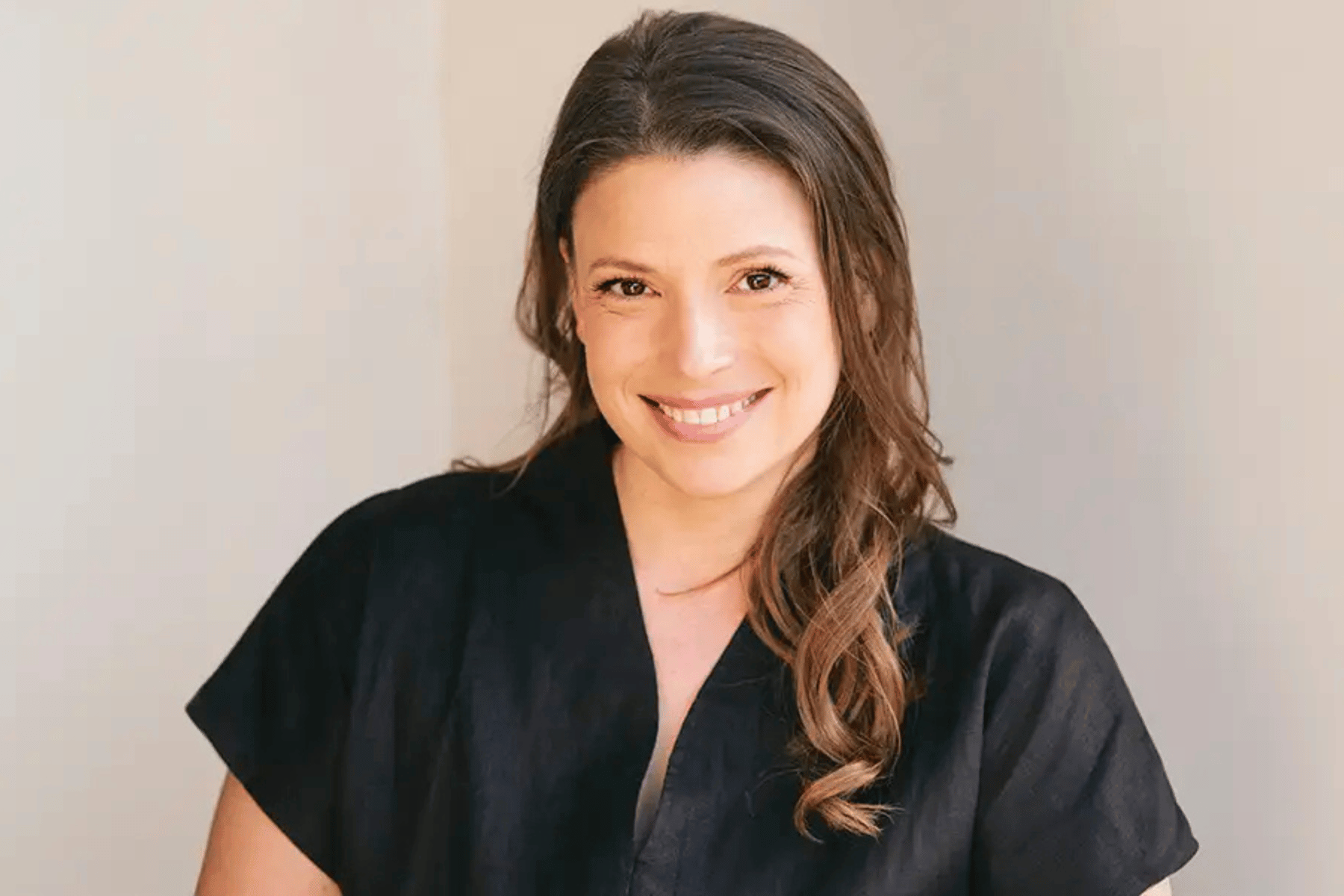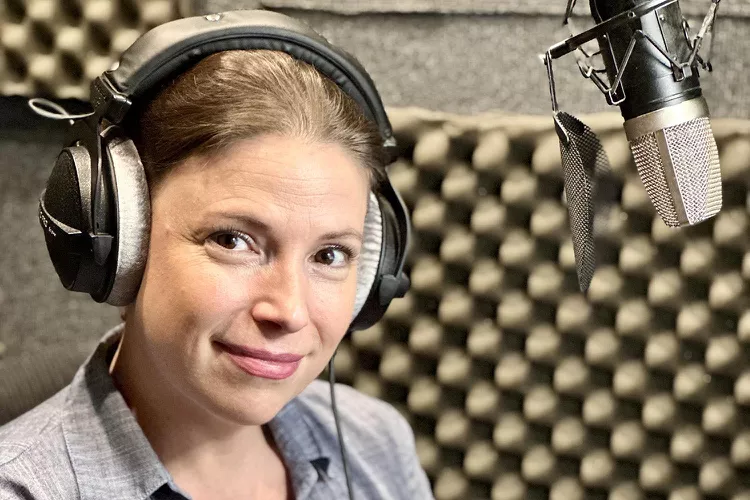If you’re a book lover, chances are you’ve heard Julia Whelan’s voice… and probably more than once.
She’s narrated over 700 audiobooks, from Gone Girl to The Invisible Life of Addie LaRue, and has been dubbed everything from “the Meryl Streep of audiobooks” to “the Adele of audiobooks.”
But how did she go from child actor to one of the most beloved narrators in publishing? And why did she launch her own audio publishing company?
Julia sat down with me on Shelf Made Stories to talk about her journey, the quirks of audiobook recording, and how she’s fighting to make the industry better.
From Hollywood to the Audio Booth
Julia started acting in front of the camera as a kid, but the industry was shifting just as she graduated from college.
“Hollywood had changed enormously,” she explained. “Work dried up. But then a friend’s mom suggested audiobooks. I had never listened to one, didn’t even know what they were, but when I tried it… It was everything I loved in one job.”
At first, the industry was tiny. Audiobooks weren’t glamorous, and few actors wanted to do them because the pay was low and the work was solitary.
“It was this small town of people who really loved it. And suddenly I went from one book every quarter… to 70 a year. Then Audible blew up, and the industry exploded.”
Audio Book Collaboration and a Little Bit of Freedom
Unlike Hollywood, Julia found the audiobook world refreshingly trusting. Producers often just sent her the manuscript and said, “Do your thing.”
“That freedom hooked me,” Julia said. “On camera, you’re proving yourself constantly. But in audiobooks, they trusted me to carry the story.”
Still, collaboration does happen, especially with certain authors. Julia might text Emily Henry mid-project to ask, Who did you imagine when you wrote this character? Or she’ll work closely with fantasy authors to invent accents for entire species. But most of the time, it’s Julia in her booth, directing herself, inhabiting every role.
Julia laughed when I asked if recording steamy romance scenes ever gets uncomfortable.
“Honestly? No. Those scenes serve the same purpose as a battle or chase scene. They’re climactic. They drive the story. By myself in the booth, I don’t even register them differently.”
That said, recording alongside other narrators, whether live or over Zoom, comes with its own hilarity. “People imagine these intimate sessions,” she said. “In reality, someone’s stomach growls, we stop, laugh, start over… It’s the opposite of sexy.”
Why She Started Audiobrary
After 15 years and hundreds of books, Julia noticed something troubling: Narrators made the least money in an industry built on their voices.
Authors, publishers, and retailers thrived, Audible often taking more than 50%, but narrators saw no royalties, even when a book went mega-bestseller.
“I finally thought, if no one else is going to change it, I will.”
So she founded Audiobrary, a publishing company and direct-to-consumer retailer designed to pay narrators royalties and give authors a higher cut. Readers who buy directly also get bonus features.
“It’s about creatives getting the most for the work they create. The current system isn’t sustainable. So let’s build a better one.”
Writing, Reading, and Netflix Deals
Julia isn’t just a narrator. She’s also an author. Her debut novel, My Oxford Year, started as a screenplay, then became a book, and is now a Netflix movie starring Sophia Carson. Her second, Thank You for Listening, is a rom-com set in the audiobook world.
And yes, she narrated both herself.
When asked if she still reads for pleasure, Julia admitted it’s rare. Prepping books for narration takes up most of her reading time.
“It’s the classic irony,” she said. “You get into the job because you love books, then you’re too busy to read them just for fun.”
The Secret to Longevity in the Book Industry
So what’s her advice for aspiring narrators or anyone hoping to break into the book world?
“Be a good literary citizen. Show up for people. Support the work you genuinely love. Relationships matter in this industry. People remember who cheered them on.”
Julia is living proof of that. Whether she’s voicing an unforgettable character, writing her own novels, or reshaping how the industry treats creatives, she’s always pushing for stories and the people behind them to get the recognition they deserve.

